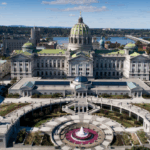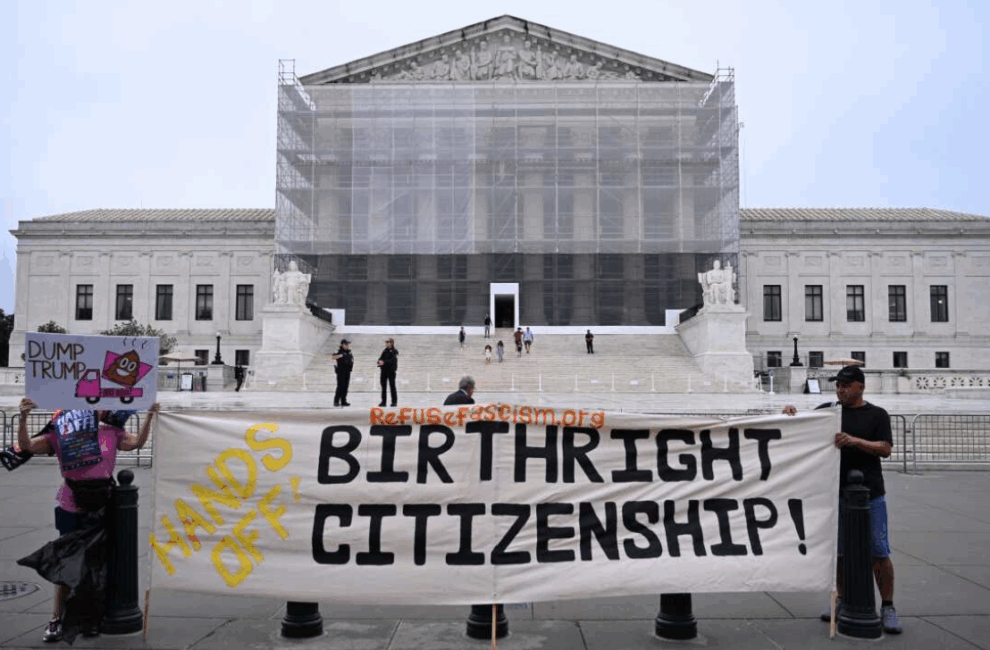Justice Amy Coney Barrett, writing for the majority, concluded that nationwide injunctions go beyond the authority of federal courts.
In last week’s ruling on President Trump’s attempt to end birthright citizenship, the U.S. Supreme Court dealt a major blow to federal judges by curtailing their power to issue nationwide injunctions.
Friday’s 6–3 ruling in the Trump v. CASA case centers on the president’s executive order to end birthright citizenship for children born in the U.S. to non-citizen parents.
Justice Amy Coney Barrett, writing for the majority, stated that universal injunctions exceed the equitable authority granted to federal courts. She emphasized that courts should provide relief only to plaintiffs directly involved in a case, not to individuals nationwide who are separate from the litigation. The Court’s move significantly strengthens the executive branch’s ability to implement policies without the interference of judicial activism.
President Trump hailed the ruling as “an amazing decision, one that we’re very happy about.” Trump praised the Court for delivering “a monumental victory for the Constitution, the separation of powers and the rule of law, in striking down the excessive use of nationwide injunctions to interfere with the normal functioning of the executive branch.”
Today SCOTUS made it possible for Americans to finally get what they voted for. No longer will rogue judges be able to seize executive power through bogus nationwide injunctions.
This is a huge win for the American people. pic.twitter.com/rlRmkdqJXh
— U.S. Department of Justice (@TheJusticeDept) June 27, 2025
Notably, the Court’s decision sidestepped the anticipated ruling on the constitutionality of the executive order on birthright citizenship itself. As the Court instead focused on the scope of judicial authority, the underlying–and deeply controversial–legal issue of birthright citizenship was left to an uncertain future resolution.
Some political analysts have been quick to voice their support for the new limitation on nationwide injunctions, noting that the practice has frustrated presidential administrations on both sides of the aisle.
“In just 6 months Trump has been subject to 40 nationwide injunctions; 90% of them from just five liberal district courts,” CNN analyst Brad Todd shared on social media, calling the practice “legislation by adjudication” and “corrosive to free society.”
“Justice Amy Coney Barrett saved us from it,” Todd concluded.
Critics, including Justice Sonia Sotomayor in her dissent, argue the ruling undermines the judiciary’s ability to check executive overreach and protect constitutional rights. She warned that limiting injunctions to specific plaintiffs could render constitutional protections “meaningful in name only” for those not directly involved in lawsuits.
The decision has prompted advocacy groups to adjust their legal strategies, focusing on class-action lawsuits to seek broader relief. For instance, CASA, one of the organizations challenging the executive order, has requested class certification to represent all affected individuals.
“[T]he parents of children covered by the Citizenship Order would be well advised to file promptly class-action suits and to request temporary injunctive relief for the putative class pending class certification,” Sotomayor recommended.
The matter of birthright citizenship remains firmly fixed at the center of public discourse, with a federal judge demanding on Monday that the administration provide a written summary of what it believes it “can and can’t do” in light of the Supreme Court ruling.











